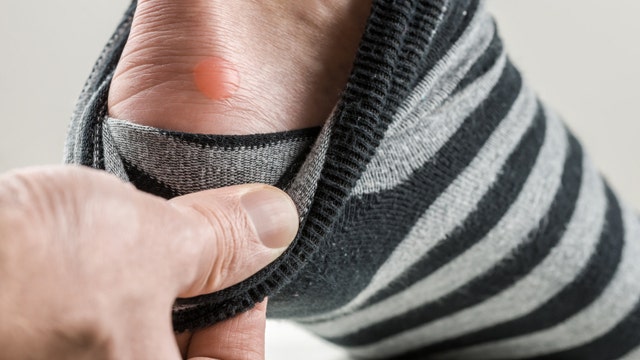Foot blisters: to pop or not to pop?
Q&A with Dr. Manny: I always thought it was best to leave blisters alone, but my fiancé keeps telling me to pop them. What's really the best way to treat them?
We all get blisters, but they’re particularly common in the warmer months because of the heat. Whether you get them from tight running shoes or a new pair of heels-- they can be annoying and terribly painful.
We recently received this question from a viewer:
Dear Dr. Manny,
After a night out wearing new shoes I came home with two huge blisters on my toes. I always thought it was best to leave them alone, but my fiancé keeps telling me to pop them. But what's really the best way to treat them?
Thanks,
Beca
Foot blisters are small bubbles of liquid that develop on the outer layer of the skin and are typically caused by friction from your shoes or socks rubbing against the skin. Most blisters don't require special attention and should go away within a few days.
“If you do develop a blister it’s best to soak your foot and not pop the blister, I’ve seen so many people with infections,” Dr. Suzanne Levine a podiatrist in New York City told FoxNews.com. “Soak your feet in Epsom salt solution rinse and dry gently.”
If a blister pops on its own, you should clean the area with mild soap and water, dry gently and then apply a topical antibiotic, Levine said.
The only time you should pop a blister is if it’s in a weight-bearing area and the pain is unbearable. To safely pop a blister, Levine suggests following these steps:
-Gently clean the area with soap and water. Rinse with cool water. Dry gently.
-Apply a small amount of rubbing (isopropyl) alcohol to the blister and let dry (it is the drying of the alcohol that kills the germs).
-Take a sterile needle (If you do not have one, use a sewing needle). First clean the needle with soap and water and then briefly heat the tip of the needle in a flame. Be careful not to overheat the needle or burn yourself.)
-Gently puncture the blister at its base. Do NOT push the needle in too deep or into the adjacent normal skin. Fluid should come out from the blister. You can gently press on the blister.
-Blot the region dry with a clean lint free piece of cotton and apply topical antibiotic such as Neosporin or bacitracin and cover with a Band-Aid.
Do you have a health question for Dr. Manny? Please send it to DrManny@FoxNews.com.

